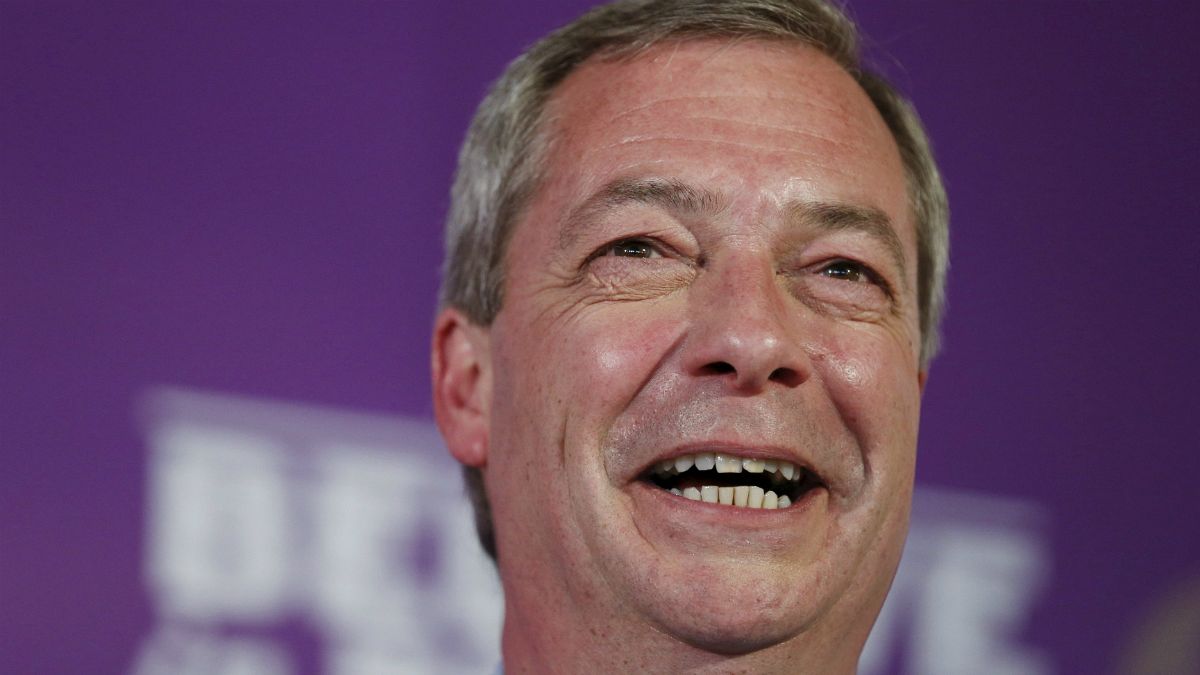Nigel Farage, aged 51, campaigns with vigour. He wants to redefine Britain’s relationship with Europe and its immigration policy. The
Nigel Farage, aged 51, campaigns with vigour. He wants to redefine Britain’s relationship with Europe and its immigration policy.
The UK Independence Party leader since 2010, and also from 2006 to 2009, has always worked hard to get the vote out, from UKIP’s days on the fringe to headline-grabbing in the 2014 European elections when UKIP won the most votes in Britain, ahead of Labour and the Conservatives.
It has polled steadily higher.
Farage said: ‘‘We are the only party standing in this general election saying we want a trade deal with Europe. We want to be good neighbours with our European friends but we desperately seek a referendum so that we can set this country free from political union.’‘
The European election result was the political upheaval Farage had predicted: UKIP coming first, then Labour, the ruling Conservatives placing, historically, humiliatingly, third.
Farage said: “See you in Westminster.”
But following this up with hefty gains in local elections has proved a difficult challenge to surmount.
“It is an earthquake in British politics, it is a remarkable result and it does have, I think, profound consequences for the leaders of the other parties.”
Farage and other anti-establishment winners formed a eurosceptic group in the European Parliament, including the Italian Five Star Movement, then the group fell apart after it lost its seven nationality quorum when an MEP for the Latvian Farmers’ Union dropped out.
Having entered the big party playground, now UKIP had to compete as one of them, not only angling to get Brussels out of Britain, so to speak, but nationally and locally.
Hammering immigration up the agenda, UKIP plumbed for the other parties’ votes.
Farage said: “We will campaign for this country to have an Australian points-style system to decide who should come and settle in our country.”
Farage’s ancestry includes French Protestants and Germans. Educated at a fee-paying school, he later chose commodity trading rather than university. He left the Conservative Party over EU integration, when John Major’s government signed the Maastricht Treaty, helped found UKIP and has been in the European Parliament since 1999.
He controversially employed his second wife, German-born Kirsten, as his parliamentary secretary. She is a former bond broker who has said she mostly single-handedly manages their two daughters and domestic tasks. She generally avoids the limelight. While praising her husband, she has voiced concern over his adrenaline-fuelled work and smoking.
